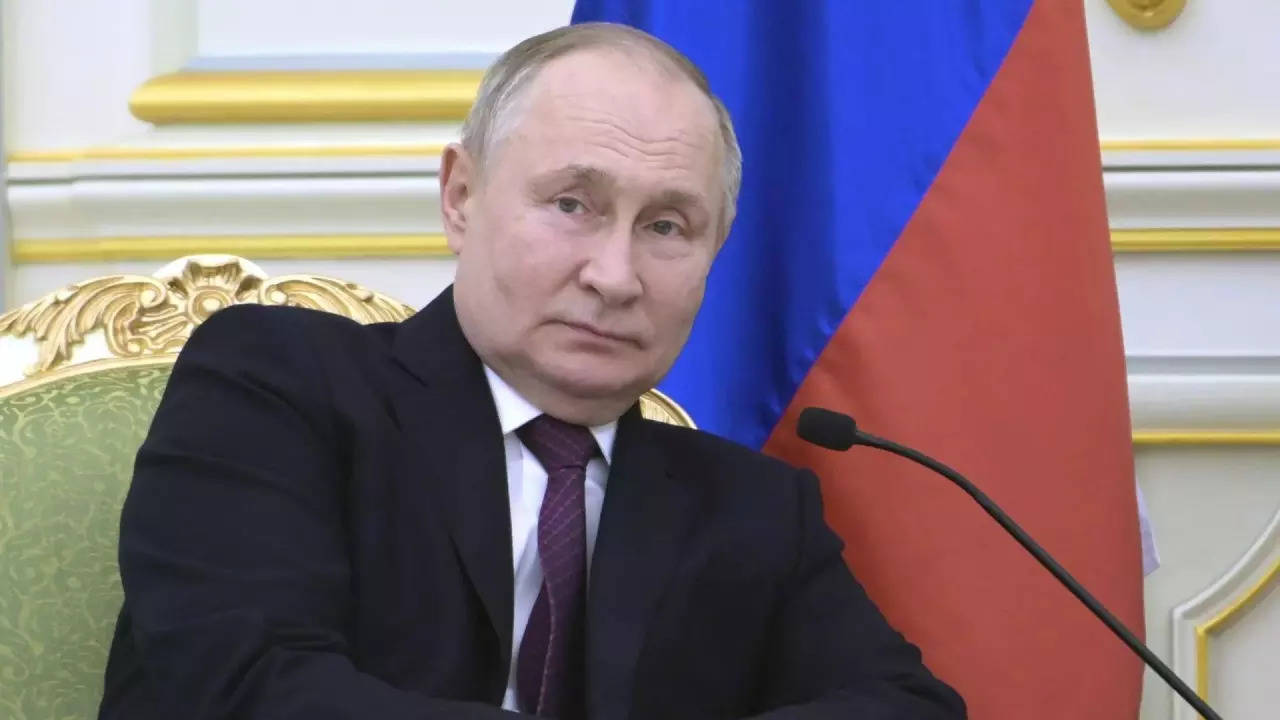HANOI: Vietnam’s foreign affairs ministry has annoyed the European Union by postponing a meeting next week with the EU‘s top official on Russian sanctions, ahead of a possible visit to Hanoi by Russia’s President Vladimir Putin.
Vietnam has been striving to pursue a neutral foreign policy in its relations with major world powers. It has abstained from condemning Russia’s attack on Ukraine, a position that Western countries see as too close to the Kremlin.
Special envoy for the implementation of EU sanctions, David O’Sullivan, is visiting Southeast Asia next week and had planned to meet Vietnamese officials on May 13-14, but Hanoi asked to delay the meeting “as leaders were too busy to meet with him,” one diplomat with direct knowledge of the situation said.
Three other diplomats confirmed the postponement of the visit, with one saying Vietnam had suggested July as an alternative date.
Two of the diplomats and another person familiar with the discussions linked the delay to preparations for a possible visit by Putin to Vietnam. One source said the Russian leader’s visit could be “spoiled” by any talks with the EU envoy.
Shortly after Reuters reported on the matter, the EU diplomatic delegation in Hanoi issued a statement describing the postponement of the meeting as “disappointing” and said it was discussing a new date with the Vietnamese authorities.
A spokeswoman for Vietnam’s foreign ministry told a regular press conference later on Thursday that Hanoi was discussing with the EU a date for the meeting.
Asked about Putin’s possible visit, she said information would be shared “at a suitable time”.
Russia’s embassy in Hanoi did not reply to a request for comment.
Inviting Putin
Vietnamese leaders have repeatedly invited Putin to Vietnam in recent months, despite the Hague-based International Criminal Court (ICC) having issued in March 2023 an arrest warrant for the Russian president over alleged war crimes in Ukraine.
Vietnam is not a member of the ICC.
Last week, Russia’s ambassador to Vietnam, Gennady Bezdetko, was reported as saying that Putin had accepted the invitation and that a date for the visit would be decided after the inauguration for his fifth term as president on May 7, according to Vietnamese state media. Putin last travelled to Vietnam in 2017.
Russia is the top supplier of weapons to Vietnam and also plays a crucial role in the exploitation of Vietnam’s gas reserves in the South China Sea, in waters that China claims as its own.
The EU, an important trading partner for Vietnam, has imposed wide-ranging sanctions on Moscow over its war in Ukraine.
O’Sullivan’s job involves making sure that countries do not help Russia or other sanctioned states to circumvent punitive EU measures, for instance by supplying Moscow with dual-use goods that could be used for its war efforts in Ukraine.
There is no evidence that Vietnam has offered any help to Russia for what the Kremlin calls its “special military operation” in Ukraine.
Some diplomats have said it would be hard to detect any trade between Vietnam and Russia that may breach sanctions, especially if it involved chips or other small components.
Vietnam has been striving to pursue a neutral foreign policy in its relations with major world powers. It has abstained from condemning Russia’s attack on Ukraine, a position that Western countries see as too close to the Kremlin.
Special envoy for the implementation of EU sanctions, David O’Sullivan, is visiting Southeast Asia next week and had planned to meet Vietnamese officials on May 13-14, but Hanoi asked to delay the meeting “as leaders were too busy to meet with him,” one diplomat with direct knowledge of the situation said.
Three other diplomats confirmed the postponement of the visit, with one saying Vietnam had suggested July as an alternative date.
Two of the diplomats and another person familiar with the discussions linked the delay to preparations for a possible visit by Putin to Vietnam. One source said the Russian leader’s visit could be “spoiled” by any talks with the EU envoy.
Shortly after Reuters reported on the matter, the EU diplomatic delegation in Hanoi issued a statement describing the postponement of the meeting as “disappointing” and said it was discussing a new date with the Vietnamese authorities.
A spokeswoman for Vietnam’s foreign ministry told a regular press conference later on Thursday that Hanoi was discussing with the EU a date for the meeting.
Asked about Putin’s possible visit, she said information would be shared “at a suitable time”.
Russia’s embassy in Hanoi did not reply to a request for comment.
Inviting Putin
Vietnamese leaders have repeatedly invited Putin to Vietnam in recent months, despite the Hague-based International Criminal Court (ICC) having issued in March 2023 an arrest warrant for the Russian president over alleged war crimes in Ukraine.
Vietnam is not a member of the ICC.
Last week, Russia’s ambassador to Vietnam, Gennady Bezdetko, was reported as saying that Putin had accepted the invitation and that a date for the visit would be decided after the inauguration for his fifth term as president on May 7, according to Vietnamese state media. Putin last travelled to Vietnam in 2017.
Russia is the top supplier of weapons to Vietnam and also plays a crucial role in the exploitation of Vietnam’s gas reserves in the South China Sea, in waters that China claims as its own.
The EU, an important trading partner for Vietnam, has imposed wide-ranging sanctions on Moscow over its war in Ukraine.
O’Sullivan’s job involves making sure that countries do not help Russia or other sanctioned states to circumvent punitive EU measures, for instance by supplying Moscow with dual-use goods that could be used for its war efforts in Ukraine.
There is no evidence that Vietnam has offered any help to Russia for what the Kremlin calls its “special military operation” in Ukraine.
Some diplomats have said it would be hard to detect any trade between Vietnam and Russia that may breach sanctions, especially if it involved chips or other small components.

